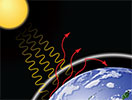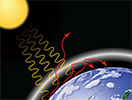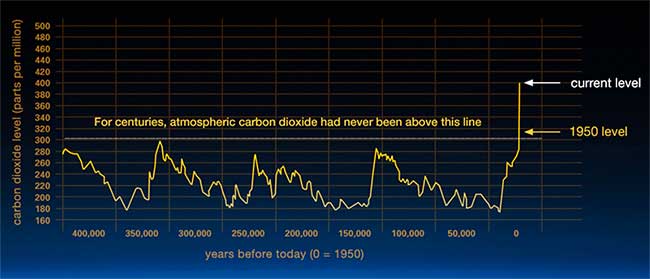

Climate Change
There is overwhelming agreement amongst scientists that:
- the earth’s climate is changing, and
- human actions are influencing this change
Causes
There is, however, an explanation on which the vast majority of the scientific community agree: the unprecedented scale of greenhouse gas emissions by human beings since the industrial revolution. The mechanism is not complicated in itself: greenhouse gases such as carbon dioxide absorb heat and then re-emit it in all directions, reducing the overall amount of heat that escapes earth into space. In 2015, human beings were responsible for emission of around 11,200,000,000 tonnes of carbon.

.gif)

Effects
The earth’s average surface temperature has risen by around 1.1 degrees centigrade since the late 19th century, with most of the change occurring in the past 35 years. But we also know climate change is occurring because of its visible effects upon our planet: polar ice caps and glaciers are melting; oceans are becoming warmer and more acidic; sea levels are rising; floods, droughts and other extreme weather events are occurring more frequently and more severely. These effects pose many threats to human beings and ecosystems: from the most direct effects, such as fatalities through famine or flood, through to more ‘indirect’ effects such as rising food prices or the pressures of climate-based migration. And while many of the most severe effects of climate change may be experienced by vulnerable communities far away from the UK, the UK itself is already beginning to experience effects such as extreme rainfall and increased flooding.

